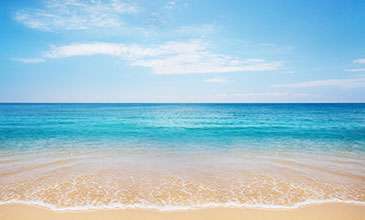(Phys.org) —A new study by researchers at the University of Bristol and Plymouth Marine Laboratory has shed light on how different species of marine organisms are reacting to ocean acidification.
Since the Industrial Revolution, nearly 30 per cent of all the carbon dioxide produced by manmade emissions has been absorbed by the ocean, causing a drop in pH of ocean surface waters: ocean acidification.
The current rate of CO2 emissions is unprecedented in the past 65 million years and there are considerable risks for the marine ecosystem all over the globe. The related risks for marine life and the associated consequences for humanity will be discussed at the upcoming Washington Ocean Summit, chaired by US Secretary of State, John Kerry on 16-17 June.
The difficulties in predicting the future of our oceans is, among others, the different response to ocean acidification in closely related species and therefore the inability to generalize physiological effects.
Dr Sophie McCoy (Plymouth) and Dr Federica Ragazzola (Bristol) compared historical material and recent material from crustose coralline algae from a location with fast acidification on the west coast of the United States.
They found that the reaction to ocean acidification in some organisms is driven by their morphology (that is, the form and structure of the organisms and their specific structural features) and therefore, organisms with the same morphology will react the same independently of how closely related the species are.
Dr Ragazzola, a Leverhulme post-doctoral researcher in Bristol's School of Earth Sciences said: "The mechanisms we have identified in crustose coralline algae may be applicable to other calcifying taxa with differences in morphological types dictated by skeletal thickness and growth rates."
Dr McCoy, a Marie Curie Fellow at Plymouth Marine Laboratory added: "Our use of historical specimens in this study has enabled us to study long-term response to ocean acidification in the context of environmental variability and community processes that occur in nature. This type of study is an important complement to experimental work in this area."
The research is published today in Nature Climate Change.
More information: Skeletal trade-offs in coralline algae in response to ocean acidification. S. J. McCoy & F. Ragazzola. Nature Climate Change (2014) DOI: 10.1038/nclimate2273. Received 13 March 2014 Accepted 19 May 2014 Published online 15 June 2014
Journal information: Nature Climate Change
Provided by University of Bristol

.jpg)





















